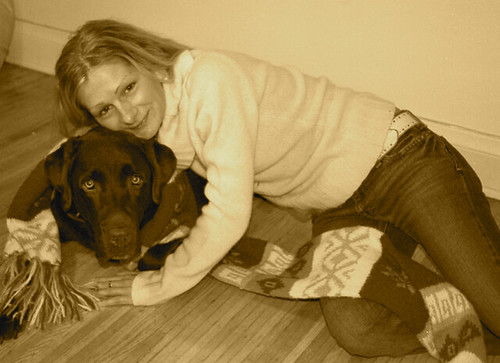Tidbits #5
Who Put Butter in Butterfly? by David Feldman
Why Can Some People Get Your Goat Instead of Getting your Mynah Bird or Getting your Basset Hound?
Although there is some dispute about how this colorful term for the uncanny ability of some people to rile us, annoy us, irritate us, vex us, and get under our skin, most lexicographers attribute the origins get your goat to the world of thoroughbred horse racing. Horse trainers have long put a companion in stalls with high-strung thoroughbreds, particularly voliate stallions.
Putting a horse of the same sex in the stall would lead to territorial battles; putting a horse of the opposite sex in the stall might, to put it politely, distract the stallion from the task at hand. Goats, among the most boring and least demanding of animals, soothed horses effectively.
Horses tended to become attached to their goat roommates, so much so that rival barns sometimes would steal the goat of a rival the night before a race. The horse would become upset and presumably underperform the next day. So someone whose goat has been gotten is actually being compared to a horse rather than a goat.
(I need to get a goat for my itchness ;) )
Why Do We Say Let the Cat Out of the Bag Rather Than Let the Gerbil Out of the Bag?
Gerbil won't work because this expression is not metaphorical. In medieval times, pigs were sold live at fairs and open markets. Pigs aren't exactly docile, and they don't cotton to standing still in stalls while shoppers eye their potential as bacon.
Without room to house the pigs in pens, the only practical solution was for the sellers to tie up the pigs in burlap sacks. The customers couldn't see what they were buying, and a gullible buyer-- the type that today would see a three-card monte game in Times Square as an opportunity to enhance his financial security -- might end up buying a cat rather than a pig. When the buyer finally opened his bag, the truth was revealed.
The theory that some buyers were actually fooled is bolstered by another cliche, a pig in a poke. A poke is Middle English for "sack" or "bag". This expression implies a blind guess, one that is as likely to turn "catty" as "porcine".
Why Can Some People Get Your Goat Instead of Getting your Mynah Bird or Getting your Basset Hound?
Although there is some dispute about how this colorful term for the uncanny ability of some people to rile us, annoy us, irritate us, vex us, and get under our skin, most lexicographers attribute the origins get your goat to the world of thoroughbred horse racing. Horse trainers have long put a companion in stalls with high-strung thoroughbreds, particularly voliate stallions.
Putting a horse of the same sex in the stall would lead to territorial battles; putting a horse of the opposite sex in the stall might, to put it politely, distract the stallion from the task at hand. Goats, among the most boring and least demanding of animals, soothed horses effectively.
Horses tended to become attached to their goat roommates, so much so that rival barns sometimes would steal the goat of a rival the night before a race. The horse would become upset and presumably underperform the next day. So someone whose goat has been gotten is actually being compared to a horse rather than a goat.
(I need to get a goat for my itchness ;) )
Why Do We Say Let the Cat Out of the Bag Rather Than Let the Gerbil Out of the Bag?
Gerbil won't work because this expression is not metaphorical. In medieval times, pigs were sold live at fairs and open markets. Pigs aren't exactly docile, and they don't cotton to standing still in stalls while shoppers eye their potential as bacon.
Without room to house the pigs in pens, the only practical solution was for the sellers to tie up the pigs in burlap sacks. The customers couldn't see what they were buying, and a gullible buyer-- the type that today would see a three-card monte game in Times Square as an opportunity to enhance his financial security -- might end up buying a cat rather than a pig. When the buyer finally opened his bag, the truth was revealed.
The theory that some buyers were actually fooled is bolstered by another cliche, a pig in a poke. A poke is Middle English for "sack" or "bag". This expression implies a blind guess, one that is as likely to turn "catty" as "porcine".
